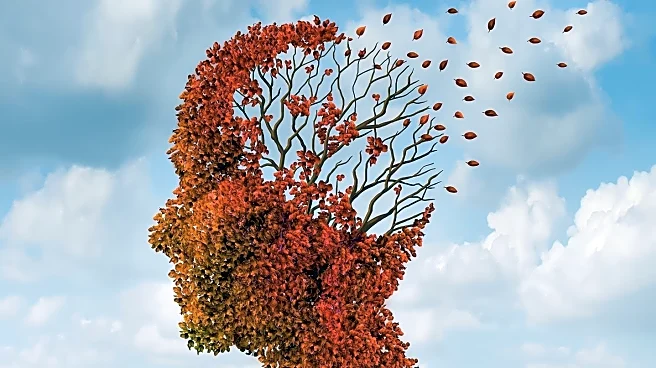What is the story about?
What's Happening?
A neurologist has highlighted five subtle signs that may indicate an increased risk of dementia, emphasizing the importance of early detection for cognitive health. These signs include difficulty balancing on one leg for about 10 seconds, trouble rising from a chair without using hands, acting out dreams during sleep, persistent feelings of loneliness, and a weak hand grip. These symptoms, often overlooked, can be early indicators of changes in the brain associated with dementia. Studies have shown that poor balance may be linked to small-vessel disease in the brain, while difficulty in the 'sit-to-stand' test correlates with reduced blood flow and brain function. Acting out dreams could suggest REM Sleep Behavior Disorder, a condition linked to early brainstem degeneration. Loneliness has been associated with reduced grey matter in memory regions, and weak grip strength is connected to smaller brain volumes and poorer cognitive performance.
Why It's Important?
The identification of these early signs is crucial as they offer a window for intervention before significant cognitive decline occurs. Recognizing these symptoms can lead to early diagnosis and management, potentially slowing the progression of dementia. This is particularly significant for public health, as dementia affects millions of individuals and poses a substantial burden on healthcare systems. Early detection and intervention can improve quality of life for those at risk and reduce long-term healthcare costs. Additionally, understanding these signs can empower individuals to seek medical advice sooner, leading to better outcomes through lifestyle changes and medical treatments.
What's Next?
Individuals experiencing these symptoms are encouraged to consult healthcare professionals for further evaluation. Medical practitioners may recommend lifestyle modifications, such as resistance training and social engagement, to mitigate risks. Further research is likely to continue exploring the links between these early signs and dementia, potentially leading to new diagnostic tools and preventive strategies. Public health campaigns may also focus on raising awareness about these subtle symptoms to promote early detection and intervention.
Beyond the Headlines
The recognition of these early signs also raises ethical considerations regarding the balance between early diagnosis and the potential anxiety it may cause individuals. There is a need for sensitive communication strategies to ensure that individuals are informed without undue stress. Additionally, the findings highlight the importance of holistic health approaches that consider physical, mental, and social well-being as interconnected factors in cognitive health.
















